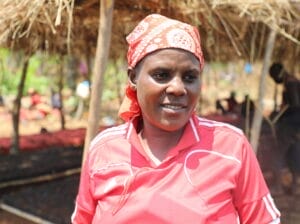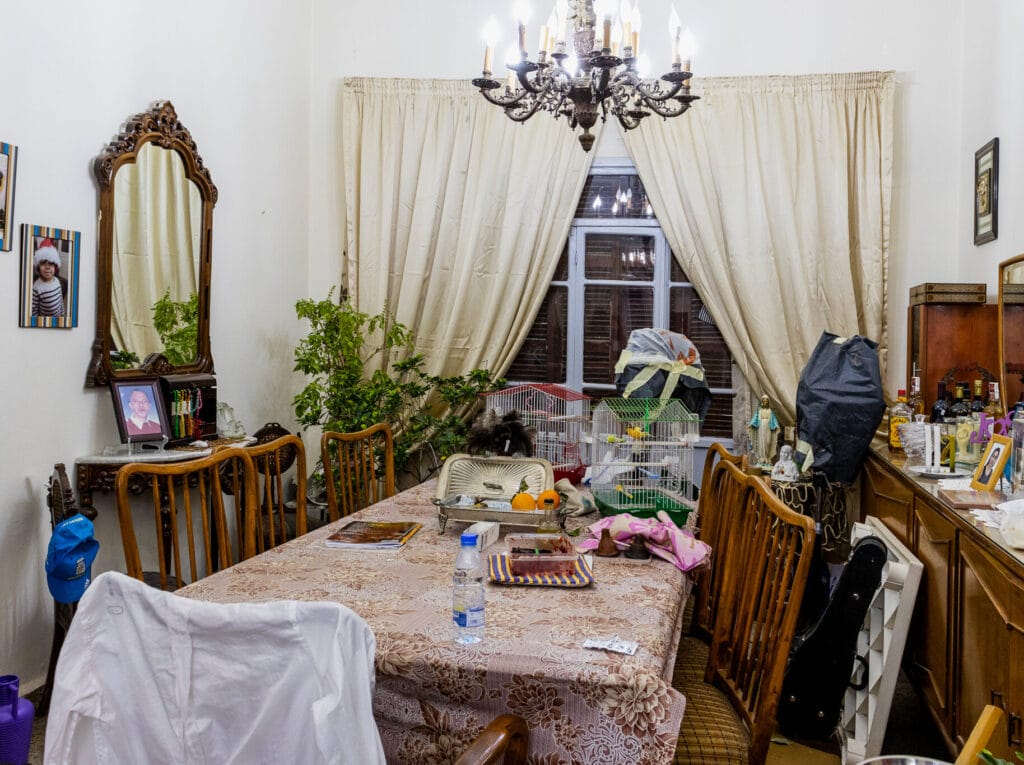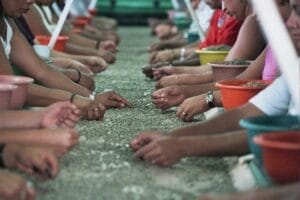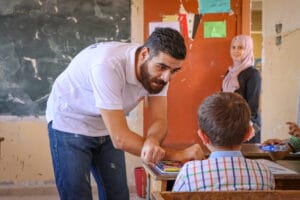

It was precisely at 18:09:40 on August 4th 2020, when a massive explosion originated from a warehouse storing tons of ammonium nitrate at the port of Beirut, and sent shockwaves throughout the city.
Antoine remembers it vividly as it was at this exact time that one of the wall clocks broke down, freezing the moment the explosion would hit his family apartment, in Ashrafieh district.
The whole family was home when it happened: his wife, Nouhad; his younger daughter, Suzanne; his older son, Michelle along with Michelle’s wife and baby.

“The explosion came from the back”, recounts Antoine, “and it annihilated most of the things that were on the balcony. There were the cage of one the birds, some chairs, a table, a jar for painting. Most of these things disappeared into thin air.”
“The damage was more serious here on the first floor than on the other floors of the building”, he continues, “Apart from the shattered glasses, the window frames of the living room and dining room tore down. The TV also broke and in the kitchen, the dishes smashed.”
Antoine’s house was among the approximately 6,000 buildings damaged or destroyed in the blast.

“I would normally go jogging around 6pm every day. The moment of the blast, I was opening the glass door dividing the living room from the bedrooms.” Suzanne, Antoine’s 28-year-old daughter, tells us “The glass shattered but I managed to protect my face just in time. Due to the shockwave, I was ejected against the wall and hit my head hard. I still feel pain when I get angry or anxious.”
Suzanne opens up about the lasting psychological effects of the blast “Even if 7 months have passed already, I, we are still thinking about it. You can’t forget.
Whenever there is a storm and I hear thunder, I go back to that moment. I know that, eventually, everything will be ok, but now I am not ok. Right now, for me it’s ok not to be ok.”

Immediately after the blast, Antoine tried to take care of the most urgent things. He and his family knew too well they couldn’t stay without windows, as their apartment is on the first floor of the building.
However, he didn’t have the means to replace the glass right away. It was too expensive, around 80$ per piece. For this reason, he waited about a week to see if he could negotiate for a lower price.
The first time one of the engineers from WeWorld-GVC came to assess the condition of the apartment, Antoine and his family didn’t believe him.
“The first and the second week after the explosion, every day there would be 2 to 3 organizations coming to ask questions, take pictures…So many other NGOs visited and assessed the apartment but never came back afterwards.”, Antoine remarks.
When, in fact, WeWorld-GVC engineer did come back again, it was then that the family started trusting this time would be different.
“Noussair (ndr. the engineer who visited them) gave us hope”, Antoine, Nouhad and Suzannekeep repeating.
During the month of December 2020, WeWorld-GVC intervened with reparation works, which included fixing windows, replacing 11 doors, painting the walls, repairing the water heater…

“We didn’t mind staying the house. We are aware of the danger posed by COVID-19 and we don’t want to catch it.” Antoine tells us mentioning some friends lost due to the virus.
“We are all very cautious and implement all the necessary precautions to avoid getting infected. We avoid going out when it’s not urgent and wear masks.”
Lebanon recently came out from one of the strictest lockdowns ever enforced. For almost three months, people in the country were under a round-the-clock curfew unable to leave the house even for grocery shopping.

“Now that our house has been repaired, we feel safe and comfortable. We are very satisfied by the job done by WeWorld-GVC team. They were really scrupulous: for example, they replaced one of the living room doors twice because the first time the job was not good. Now we are happy to spend time at home.” Antoine concludes.



